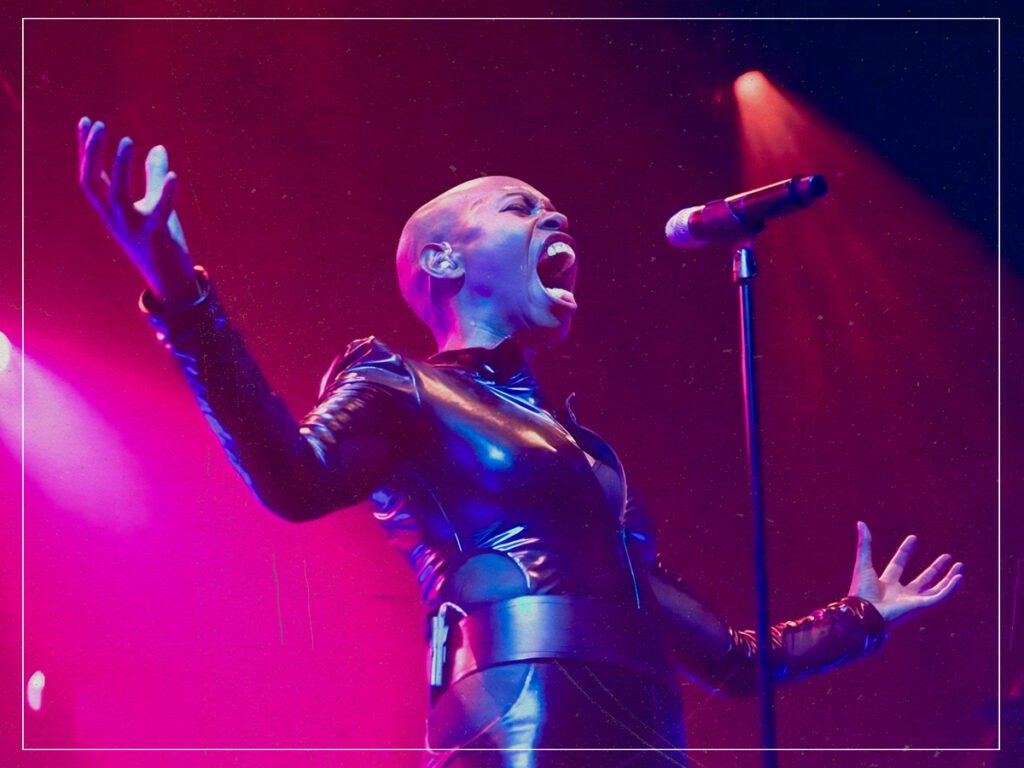
(Credits: Far Out / Alterna2)
The world’s unlikely to change if you simply wave your fist at it, even less so if you don’t know exactly who you’re addressing with your rage. With Skunk Anansie, though, and countless other female faces in rock, it’s clear there’s an attitude to attest, the kind that tells women they stop being relevant when their appearances change. When the first grey hair peers through, and suddenly our careers are over.
These conversations have been intensifying in recent years, even though the issue itself spans decades. More worrying, though, is that some people only started listening when Debbie Harry recently put it into perspective, saying that ageing was a privilege that most would do well to remember and appreciate from time to time. Perfect strangers might suddenly turn on a woman for no longer being their version of desirable, but thinking about that all the time, quite plainly, and as Harry said, will send you mad.
We’ve known this to happen time and time again. It plagued Stevie Nicks for decades. But where the entire thing falls apart isn’t just the obvious ridiculousness of such a trend, it’s that, for whatever reason, it damages whatever constitutes as an “artist”, leaving nothing but strangely sinister thoughts and feelings about women whose careers are far from over but whose expiration means they’ll no longer be seen that way. Thankfully, though, there’s Skin, who’s here to call that out once and for all.
On the latest album, The Painful Truth (a title which speaks for itself), Skin points out the simple fact that an artist is an artist when an artist is an artist. No, really, those are the lyrics to ‘An Artist Is An Artist’: “An artist is an artist / When an artist is an artist / And she don’t stop being an artist / ‘Cause she’s old, you know.” She doesn’t “pick up her zimmer frame”, as Skin suggests, comic relief offering insight into the absurdity of it all, and she sure as hell doesn’t “pack up their life and die away”.
It would have been easy to go at this with all intentions to put it poetically, to talk more abstractly about why it’s frustrating to be constantly faced with opinions about why you’re no longer relevant now that you’re over 30. It would have been easy to go at it with an overly political head on, to address all the historical contexts that make these conversations so important, or necessary for others to realise how meaningless it all sounds in practice.
But the choice of words throughout ‘An Artist Is An Artist’ is punkishly simple, like less thought-through ramblings coming from a real place of frustration, where frankness is the only thing that’s going to make it all make sense. Here, there’s no reason for delicacies or beating around the bush, but the kind of directness that gets through, pointing out the obvious without sounding weak or mindless. It’s a hard shake of the shoulders, or a cry in to the ether, or an outburst like the one in the song that says, “They read your shit and lose the fucking will to live”.
Perhaps the crux of it isn’t just the fact that women will be reprimanded for growing older or looking differently, perhaps it’s the assumption that they exist to serve others (“They ain’t here for your pleasure”) or that their art is for anyone but themselves. Perhaps it’s the age-old debate about who women are for, as if that’s a legitimate question to ask or even think, when the reality is as simple as recognising that “the narcissist in artist” is “beautiful”.
Related Topics

